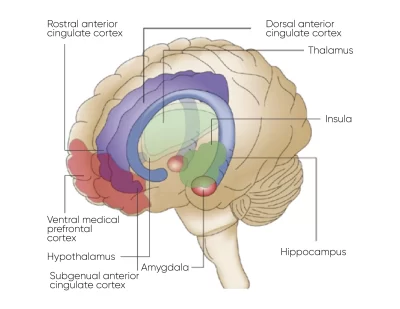Do you struggle to concentrate on a task at hand? I’m sure we’ve all had moments in our life when, no matter how hard we try to concentrate on something, we just couldn’t, leaving us frustrated and tearing out our hair. Don’t worry, I’m not judging – I was the same. In the past, I could not pay attention in lectures for my life, and I needed to reread the same passage in my textbook multiple times only to retain a quarter of the information because I just could not concentrate. In today’s fast-paced world, we’re constantly bombarded with distractions that make it difficult to stay focused and productive. Emails, social media notifications, and endless to-do lists can quickly overwhelm us, leaving us feeling scattered and stressed.
Fortunately, I found a powerful tool that helped me combat this modern-day problem, and you can use it, too: meditation. In this article, we’ll explore the science behind how meditation improves concentration and provide practical tips to help you incorporate meditation into your busy schedule. Whether you’re a student struggling to focus on your studies, a professional juggling multiple tasks, or just simply want to be more present, this article is for you. So, grab a comfortable seat and let’s dive into the world of meditation and concentration.
First, let’s explore what exactly meditation is. Meditation is an ancient practice that has been scientifically proven to improve concentration and focus, making it an essential tool for anyone looking to enhance their productivity, creativity, and overall well-being. But meditation isn’t just for spiritual seekers and yogis. It’s a practical and accessible technique that anyone can learn and incorporate into their daily routine, regardless of their experience level. Here at Glenview Meditation, we offer a specific step-by-step meditation technique that includes self reflection and the cleansing of our cluttered thoughts. Our friendly meditation guides make it easy for anyone to follow along and reap all the benefits.
This excessive cluttered thinking makes it difficult to focus on the present moment and perform to the best of our abilities. Imagine trying to process and retain information we need for our studies or jobs while our minds are constantly, endlessly wandering, running through the most useless of thoughts again and again. Even if we somehow are able to complete the task, it would take much longer than it could have, and because of the clutter, it definitely won’t be our best most satisfactory level of performance, either.
Our meditation method helps you become aware of your habits, attachments, and mind wanderings. Like a camera, we take ‘pictures’ with our five senses of every situation, surrounding, and experience we live through, and then we proceed to store these pictures in our brain. Later, instead of living and focusing in the present, we constantly just look back at these pictures. At Glenview Meditation, you can learn how to discard these thoughts to declutter your brain. By cleansing these endless thoughts and clutter, you will be able to focus your attention on the task at hand. The more you practice, the fewer cluttered thoughts you’ll have on a daily basis. Hence, since your mind isn’t constantly wandering, you will finally be able to concentrate and boost your productivity.
Incorporating meditation into your daily routine can enhance your productivity, creativity, and overall well-being. Regardless of who you are and what you’re trying to do, meditation will help you concentrate on your tasks to the best of your ability, as well as allow you to focus on the present. Thanks to meditation, I can now focus on my advanced upper-level coursework at Northwestern University much more efficiently than before, allowing me to excel. Overall, I am able to pay more attention in conversations with friends and family, focus on my needs and wants, and overall live a more fulfilling life. And you can, too!
References
Acevedo BP, Pospos S, Lavretsky H. The Neural Mechanisms of Meditative Practices: Novel Approaches for Healthy Aging. Curr Behav Neurosci Rep. 2016;3(4):328-339. doi: 10.1007/s40473-016-0098-x. Epub 2016 Oct 18. PMID: 27909646; PMCID: PMC5110576.
Killingsworth MA, Gilbert DT. A wandering mind is an unhappy mind. Science. 2010 Nov 12;330(6006):932. doi: 10.1126/science.1192439. PMID: 21071660.



